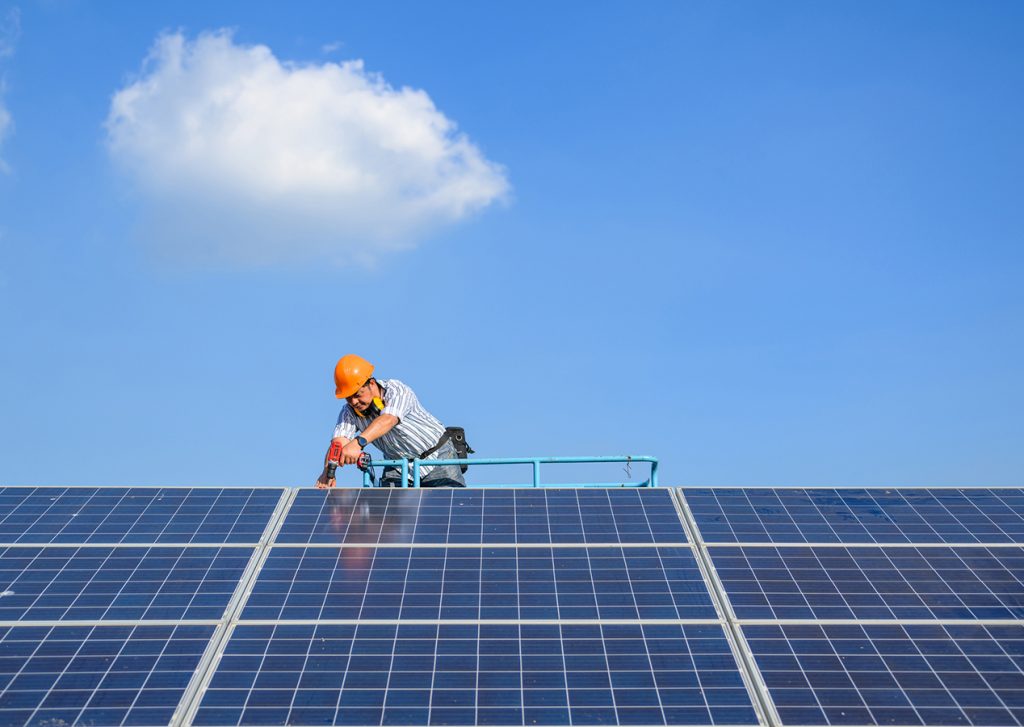Just How Solar Power Can Assist You Save Money and Decrease Your Carbon Impact
The assimilation of solar power into your energy portfolio presents a compelling opportunity for both monetary savings and ecological stewardship. As various federal government incentives come to be available, the concern arises: just how can one effectively browse the initial investments and continuous advantages of solar technology to maximize both financial and ecological gains?
Comprehending Solar Energy Savings
While the shift to solar power typically entails an initial investment, understanding solar power financial savings is important for home owners and organizations alike. Solar power systems can dramatically minimize electricity expenses by using the sun's power, converting into considerable long-lasting economic benefits. By generating their own electrical energy, customers minimize dependence on grid power, which undergoes rising and fall rates. These financial savings can collect over time, frequently bring about a rapid return on investment.
In addition, solar energy systems may get various financial incentives, consisting of tax obligation credit reports and refunds, further enhancing their cost-effectiveness. The schedule of web metering enables users to market excess power back to the grid, developing an added income stream. These elements add to the general cost savings connected with solar energy.

Along with direct monetary financial savings, solar energy offers the added benefit of raising building worth. Residences equipped with photovoltaic panels are frequently much more eye-catching to buyers, as they promise reduced energy prices - Simply Solar Illinois. Understanding these elements is necessary for anyone taking into consideration solar power, as it highlights not simply the prospective monetary gains, yet also the more comprehensive ecological and economic advantages of embracing eco-friendly energy solutions
First Prices vs. Long-Term Perks
When assessing solar power, it is necessary to consider the initial prices versus the long-term advantages. The ahead of time investment for solar panels, setup, and related tools can be considerable, commonly ranging from $15,000 to $30,000, depending on the system dimension and home energy demands. This preliminary expenditure may prevent some homeowners; nonetheless, it is critical to consider the potential financial savings with time.
As soon as set up, solar power systems can dramatically minimize and even get rid of regular monthly electrical energy bills, resulting in considerable lasting monetary benefits. Researches indicate that home owners can save anywhere from $10,000 to $30,000 over the life-span of their solar system, generally 25 years. In addition, numerous states use motivations, tax credit histories, and discounts that can counter first expenses, making solar much more available.

Decreasing Your Carbon Impact
Decreasing your carbon footprint is a crucial consideration in today's eco mindful society, and embracing solar energy is among one of the most effective approaches to achieve this objective. Solar power is a clean, renewable source that substantially decreases dependence on nonrenewable fuel sources, which are significant contributors to greenhouse gas exhausts.

In addition, the widespread fostering of solar technology encourages the growth of eco-friendly work and supports advancements in energy storage space and recommended you read efficiency. The even more individuals and companies invest in solar power, the better the cumulative decrease in carbon emissions, promoting a cleaner environment for future generations.
Government Motivations and Refunds
Embracing solar energy not just benefits the atmosphere but can additionally cause considerable economic savings, specifically with the accessibility of federal government rewards and rebates. Various federal, state, and regional programs are created to motivate home owners and businesses to purchase solar power systems, making the shift more economical.
One of the most famous incentives is the Federal Financial Investment Tax Credit Rating (ITC), which allows solar system owners to subtract site here a substantial percent of the installment costs from their federal tax obligations. This incentive has actually been pivotal in reducing the ahead of time costs related to solar power systems. In addition, several states provide their own tax obligation credit reports, grants, and refunds that can additionally boost financial savings.
Additionally, some local federal governments offer real estate tax exceptions for solar installations, making certain that home owners do not encounter increased residential or commercial property taxes as an outcome of their renewable energy financial investments. Energy business might also supply motivations, consisting of web metering and feed-in tolls, which enable solar power customers to offer excess power back to the grid.
Selecting the Right Solar System
Choosing the suitable planetary system is vital for optimizing energy efficiency and monetary advantages. click for more The choice rests on numerous elements, consisting of power needs, spending plan, and readily available area. Property owners ought to begin by examining their electricity usage to establish the system size required for ideal efficiency.
Following, think about the different kinds of solar technologies readily available. Simply Solar Illinois. Photovoltaic Or Pv (PV) panels are the most usual, converting sunlight straight into electricity, while solar thermal systems focus on home heating water. Each type has distinctive advantages relying on individual demands
Budget plan considerations are additionally critical. First installation expenses can vary dramatically, so it is necessary to contrast quotes from several service providers and discover financing choices. Federal government rewards and rebates can additionally decrease the economic burden, making solar systems extra available.
Verdict
The environmental advantages of solar energy contribute to sustainable techniques critical for combating environment modification. Government incentives improve the expediency of solar innovation adoption, urging a change towards a cleaner, much more financially effective energy resource.